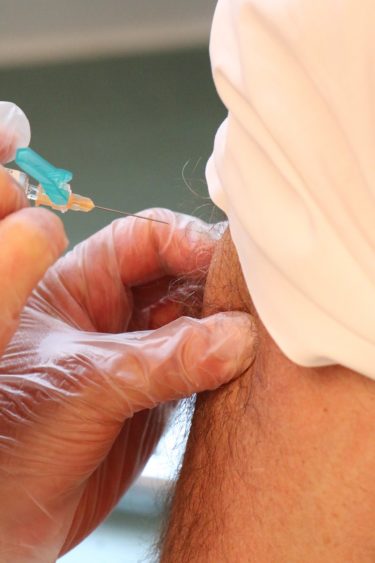Let’s be clear: pseudoscience kills. Those are the opening words of the First international manifesto against pseudoscience in health, published in eleven languages and which can still be signed on the website where it was officially started in 2019. The organizers are a network of European skeptic associations and independent collaborators from all over the planet. The manifesto seeks the signatures of health and scientific/technical experts, and has so far managed to attract 2,750 people from 44 countries. It has been covered more than a hundred times in the international media. And it’s just the beginning.
You may be wondering why this manifesto is relevant, or what it can be used for. Pseudoscience in healthcare can kill: that is a fact, regardless of whether 2750 scientists, doctors or even gladiators of the Roman circus say it. Why should anything change as a result of the manifesto? To answer that question, we first need some history.

These kinds of manifestos are nothing new. For example, in 1975, 186 scientists —including 18 Nobel laureates— signed a manifesto against astrology. The organizers were the astronomer Bart J. Book, the science communicator Lawrence E. Jerome and the philosopher Paul Kurtz. The text had a great impact on the press, because for the media, it is relevant who signs it. For a journalist it is not a story to say that 186 people have signed something, but if those people are renowned scientists, that becomes a story. It may not be fair but that’s how the media works – and as people who fight superstition and scams, we have to be willing to use the tools at our fingertips, and to use realistic strategies. But is a victory possible? We can look to another similar manifesto, launched in 2018 in Spain.
The Spanish manifesto against pseudosciences in health initially brought together 400 scientists and health workers, calling for a political response to a serious public health problem: the many deaths caused by pseudosciences such as homeopathy. After a successful communication campaign that saw coverage of the manifesto by almost every Spanish newspaper and television channel, the Spanish government launched the first state plan to fight pseudoscience. They also put forward to the European Commission an initiative to withdraw the status of homeopathy as a medicine. Unfortunately, the initiative failed. In the words of the European Health Commissioner, Vytenis Andriukaitis, Spain was alone in its claim.
However, this defeat was also a victory. For the first time in Europe, a small group of people, with no resources beyond the power of speech, challenged a centuries-old superstition based on lies and sugar. They also challenged a powerful lobby: the homeopathic industry. It did not take long for the homeopaths to set their lawyers against those who told the truth about homeopathy. Fortunately, one by one the homeopathic industry’s legal cases proved unsuccessful. And from this success for science and reason, the idea of creating a similar manifesto —one that united critical thinkers across the world and not just on small piece of sand in South-west Europe — was born.
No country can defeat pseudoscience alone; they are global phenomena. Instead, to score a victory over pseudoscience in our individual countries, we need global action. For this reason, any strategy that seeks to fight against pseudoscience in the world-wide arena must have the vision and experience of skeptical activists and movements from around the planet.
This manifesto is intended to be a light in the night. It is a coordinated action across many countries and with signatories from all the inhabited continents of the planet. This is important, because a pseudoscientific idea which is born in one part of the world can kill people in another part of the world. German New Medicine may have began life in Germany, but it is killing people today in the USA. Miracle Mineral Solution started on the other side of the Atlantic Ocean, but it is now harming people in England. The fraudulent data questioning the safety of vaccines that was published by the British former doctor Andrew Wakefield is right now endangering lives in France. And so the chain continues. It is endless.

Until now, in many countries of the world many scientists —and even doctors— have had a respect for pseudoscience, or at least have respected consumers’ right to choose. But, as the manifesto, says:
“Some believe there is a conflict between freedom of choice for a treatment and the removal of pseudo-therapies, but this is not true. According to article 25 of the Universal Declaration of Human Rights, every person has a right to medical care. Lying to patients in order to sell them useless products that could kill them breaks their right to correct information about their health. This way, even if a citizen has a right to refuse medical treatment when he is properly informed, it is also true that nobody has the right to lie to obtain profit at the expense of someone else’s life. Only in a world in which lying to a sick person would be considered ethical, could homeopathy —or any other pseudo-therapy— be allowed to continue to be sold to citizens”.
The time has come for scientists and healthcare workers around the world to speak up, loud and clear. That pseudoscience is dangerous is not a matter of opinion, and a treatment that doesn’t work in Denmark will not work in South Korea. It is a cold, hard fact that if someone needs real medicine and is instead sold a fake treatment, they could die. Even worse, some of these magic treatments are also dangerous by themselves: for example, acupuncture and chiropractic manipulations have killed a lot of people around the world, and it does not take a doctor to realise that ingesting Miracle Mineral Solution – a form of industrial bleach – can be extremely dangerous.
With this manifesto, other countries will be able to show their governments an indisputable reality: pseudoscience is dangerous and it can kill you. To acknowledge that there is a problem is the first step in trying to fix it. A few words and some simple ideas can change the world, with the correct strategy. If we stand together, we can make it happen.



